Imagining Health Futures, a joint initiative of the Governing health futures 2030 Commission Secretariat and UNICEF, encourages young people to share their visions of health and well-being, and how they are shaped by technology. Inspired by the experiences of young people today, our aim is to create a collection of speculative fiction short stories about the future of health.
Youth voices and imagination
Youth engagement is the pulse of this work. Imagining Health Futures provided an opportunity to encourage young people to imagine the health futures that they have the power to create. As the poet Lucile Clifton says, “We cannot create what we cannot imagine.” At the onset of COVID-19, the need to reimagine the future was clear. UNICEF and the Commission Secretariat teamed up to tackle one big goal: to reimagine health through the lens of young people in a seemingly more digital age than ever before.
After applying safeguards and gathering interest, we went straight for connecting young people with talented authors in what we now consider our ‘writers’ room’ model. These virtual safe spaces are creative forums for collaborative story building among the participants and an awarded speculative fiction author closely connected to their home country.
We conducted a pilot in September/October 2020, resulting in two captivating speculative fiction pieces — each directly inspired by youth in West Africa and Pacific Islands, respectively. After this successful pilot, we’re now expanding Imagining Health Futures to include additional country perspectives and reach even more young people.
Ten additional discussions are currently underway across South America, the Caribbean, the Balkans, Southern Africa, Eastern Africa, Southeast Asia, South Asia, and the Middle East.
In total, we’re planning to bring together more than 60 young people and 12 authors spanning 20 countries across 11 time zones and four languages. These youth voices will inspire genuine, insightful narratives revealing young peoples’ collective hopes, fears, challenges, wants, needs, and imagined solutions for the future.
Following the completion of each story, ‘writers’ room’ participants are asked to share a reflection for inclusion as a prelude to the published piece later on. These conversations with youth and resulting storytelling content illuminate perspectives that help advocate for the health and well-being of future generations.
The final collection of 15 short speculative fiction stories will be published as digital public goods (in its original UN language, or accompanied by an English translation) in late Fall 2021, complimenting the launch of the Commission report as well as UNICEF’s flagship report, The State of the World’s Children, which will focus on mental health.
Worldbuilding starts with collaboration
Imagining Health Futures offers a unique vehicle for informing and amplifying the work of the Commission, academics, and health and human rights stakeholders. Importantly, this is a strategy to make the Commission’s research more accessible and reach a wider audience, starting with young people.
In a way, this youth engagement started with us – two young professionals ourselves who were encouraged to co-lead and co-create this experience. So many initiatives speak of youth engagement, but do not support it with sufficient action. It has been so encouraging to receive such incredible support from Commissioners and across UNICEF headquarters and country offices to make this initiative a reality.
The magic of Imagining Health Futures is that it emphasises the uniqueness of each of our lives, and how these inspire worlds of action and a plurality of possible health futures. This is why we engrained diversity within our recruitment process for the discussions: gender parity, different abilities, varying socio-economic backgrounds, and alternative options for joining regardless of internet connectivity. Materials are also available in Spanish, Arabic, English and French.
We knew we’d gotten it right when, at the end of our first two pilot writers’ rooms, a young person – no more than 16 – from Fiji said to us, “We’re just school students. It’s a dream come true to be heard.” We hope he knows the strength of his visions for the future – and how they can drive health impact in his community.
Help us reach even more young people by using the hashtag #MyFutureMyHealth. Follow @GHFutures2030 as we announce a series of upcoming writers’ rooms, further highlighting the role of local young people and encouraging inclusion of more youth imaginations.
Jason Gonzalez was External Engagement Manager for UNICEF Innovation at the time of writing and Micaela Neumann was Communication Coordinator and Policy & Research Officer, The Lancet & Financial Times Commission "Governing health futures 2030: Growing up in a digital world"
-
This author does not have any more posts.

